Gardener Woodside Park: Your Ultimate Guide to Green Living
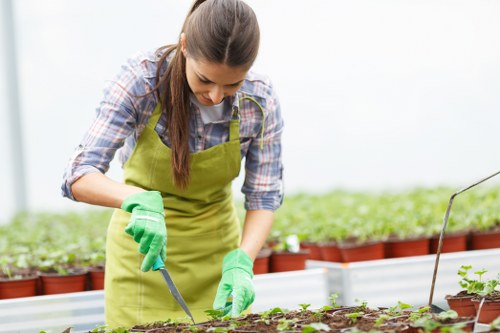
Welcome to Woodside Park, a vibrant community where gardening enthusiasts thrive. Whether you're a seasoned gardener or just starting, Woodside Park offers everything you need to cultivate a beautiful and sustainable garden.
In this guide, we'll explore the best tips, resources, and local insights to help you make the most of your gardening experience in Woodside Park.
From selecting the right plants to understanding the local climate, we've got you covered. Let's dive into the world of Gardening in Woodside Park!
Why Choose Woodside Park for Gardening?
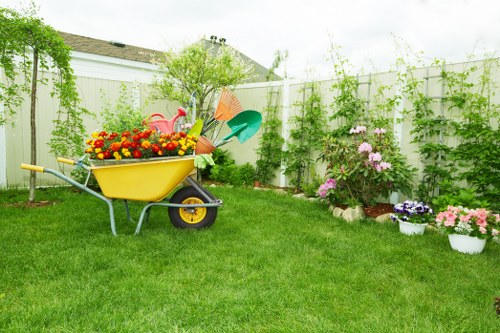
Woodside Park is renowned for its lush landscapes and supportive gardening community. The area offers a unique blend of urban convenience and natural beauty, making it an ideal place for gardeners of all levels.
The local climate is perfect for a variety of plants, ensuring that your garden can thrive year-round. Additionally, Woodside Park boasts numerous gardening resources, including nurseries, community gardens, and knowledgeable experts ready to assist you.
Whether you're looking to grow vibrant flowers, delicious vegetables, or create a serene green space, Woodside Park provides the perfect environment to bring your gardening dreams to life.
Essential Gardening Tips for Woodside Park
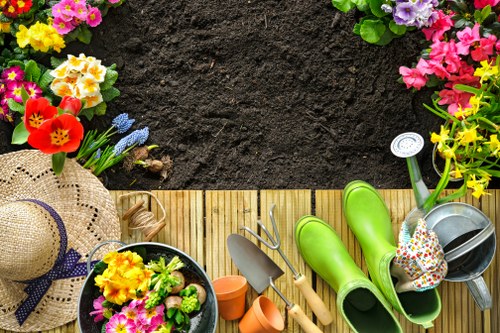
1. Understanding the Local Climate
Woodside Park experiences a moderate climate with distinct seasons. This means you can enjoy a diverse range of plants throughout the year.
Spring is ideal for planting perennials and annuals, while summer is great for vegetables and herbs. Fall offers the perfect time to prepare your garden for the colder months by planting bulbs and cover crops.
Understanding the local climate helps you choose the right plants that will thrive in Woodside Park's weather conditions.
2. Choosing the Right Soil
Healthy soil is the foundation of a successful garden. In Woodside Park, the soil varies, so it's essential to test your soil's pH and nutrient levels.
Amending your soil with compost and organic matter can improve its texture and fertility, providing a better environment for your plants to grow.
3. Selecting Suitable Plants
Choosing plants that are well-suited to Woodside Park's climate and soil conditions is crucial. Opt for native plants that are adapted to the local environment, as they require less maintenance and are more resilient.
Additionally, consider plant spacing and sunlight requirements to ensure each plant has enough room and light to flourish.
Local Gardening Resources
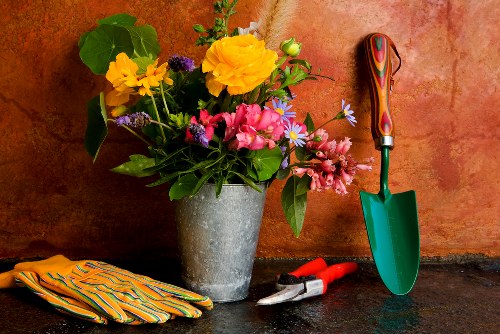
Nurseries and Garden Centers
Woodside Park is home to several reputable nurseries and garden centers that offer a wide variety of plants, tools, and gardening supplies.
These centers often host workshops and provide expert advice to help you make informed decisions about your garden.
Community Gardens
Community gardens in Woodside Park provide a great opportunity to connect with fellow gardeners, share knowledge, and collaborate on larger gardening projects.
Participating in a community garden can enhance your gardening skills and build a sense of community among residents.
Gardening Clubs and Workshops
Joining a gardening club or attending workshops is an excellent way to stay updated on the latest gardening trends and techniques.
These groups often organize events, plant exchanges, and educational sessions to support and inspire local gardeners.
Maintaining Your Garden
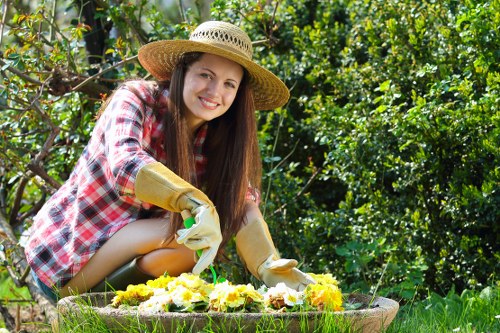
Regular Watering and Irrigation
Consistent watering is key to a healthy garden. In Woodside Park, it's important to water your plants early in the morning or late in the evening to minimize evaporation.
Consider investing in an efficient irrigation system to ensure your plants receive the right amount of water without overwatering.
Pest and Disease Control
Protecting your garden from pests and diseases is essential for maintaining plant health. Use organic pest control methods to minimize harm to beneficial insects and the environment.
Regularly inspect your plants for signs of pests or disease and take immediate action to prevent them from spreading.
Pruning and Maintenance
Pruning helps shape your plants, promote healthy growth, and remove any damaged or diseased parts.
Regular maintenance tasks, such as weeding and mulching, also contribute to a thriving garden by reducing competition for nutrients and retaining soil moisture.
Enhancing Your Garden's Aesthetics
Landscape Design Tips
A well-designed garden not only looks beautiful but also functions efficiently. Consider the layout, plant placement, and color schemes to create a harmonious environment.
Incorporate elements like pathways, seating areas, and water features to add interest and functionality to your garden space.
Creating a Wildlife-Friendly Garden
Attracting wildlife to your garden can enhance its beauty and contribute to a healthy ecosystem. Plant a variety of flowers, shrubs, and trees to provide food and shelter for birds, butterflies, and other beneficial creatures.
Consider installing birdhouses, bat boxes, and insect hotels to support local wildlife populations.
Using Sustainable Practices
Adopting sustainable gardening practices helps protect the environment and ensures the longevity of your garden. Use organic fertilizers, practice crop rotation, and conserve water through efficient irrigation methods.
Reducing chemical use and promoting biodiversity are key aspects of sustainable gardening in Woodside Park.
Top 10 Nearby Areas to Woodside Park
1. Sunnyside
Sunnyside is just a short distance from Woodside Park, known for its vibrant community gardens and local farmers' markets.
2. Astoria
Astoria offers a mix of urban and green spaces, perfect for gardeners looking to balance city living with nature.
3. Forest Hills
Forest Hills is renowned for its extensive parks and trails, providing ample inspiration for garden designs.
4. Jackson Heights
Jackson Heights boasts diverse plant varieties and multicultural gardening festivals throughout the year.
5. Elmhurst
Elmhurst features beautiful tree-lined streets and several nurseries specializing in native plants.
6. Flushing
Flushing is known for its botanical gardens and greenhouses, offering a wealth of gardening knowledge and resources.
7. Corona
Corona provides a blend of residential and gardening communities, ideal for those seeking a peaceful gardening environment.
8. Long Island City
Long Island City integrates modern architecture with green rooftops and community gardens, perfect for urban gardeners.
9. Maspeth
Maspeth offers spacious yards and a supportive community for gardeners wanting more space for their projects.
10. Ridgewood
Ridgewood is celebrated for its historic homes and well-maintained gardens, serving as a model for local gardeners.
Conclusion
Gardening in Woodside Park is a rewarding experience, thanks to its favorable climate, rich resources, and supportive community. Whether you're cultivating a small balcony garden or a sprawling backyard oasis, Woodside Park provides everything you need to succeed.
By leveraging local resources, understanding the climate, and adopting sustainable practices, you can create a thriving garden that enhances your living space and contributes to the beauty of the community.
Start your gardening journey in Woodside Park today and watch your green dreams grow!
Frequently Asked Questions
1. What types of plants are best suited for Woodside Park's climate?
Woodside Park's moderate climate is ideal for a wide range of plants, including native species, perennials, annuals, vegetables, and herbs. It's best to choose plants that are adapted to the local weather conditions to ensure they thrive.
2. Where can I find gardening supplies in Woodside Park?
There are several nurseries and garden centers in Woodside Park, such as GreenThumb Nursery and Parkside Garden Center, offering a variety of plants, tools, and gardening supplies. Additionally, local farmers' markets are great places to find seeds and organic fertilizers.
3. Are there any community gardens in Woodside Park?
Yes, Woodside Park is home to several community gardens where residents can rent plots to grow their own plants. These gardens foster a sense of community and provide a space for gardeners to share knowledge and resources.
4. How can I protect my garden from pests naturally?
Protect your garden from pests by using organic methods such as introducing beneficial insects, using neem oil or insecticidal soap, and planting pest-resistant varieties. Regularly inspecting your plants and maintaining good garden hygiene also helps prevent pest infestations.
5. What are some sustainable gardening practices I can implement?
Sustainable gardening practices include using compost and organic fertilizers, conserving water through drip irrigation, practicing crop rotation, reducing chemical use, and promoting biodiversity by planting a variety of species. These practices help create a healthy and environmentally friendly garden.

